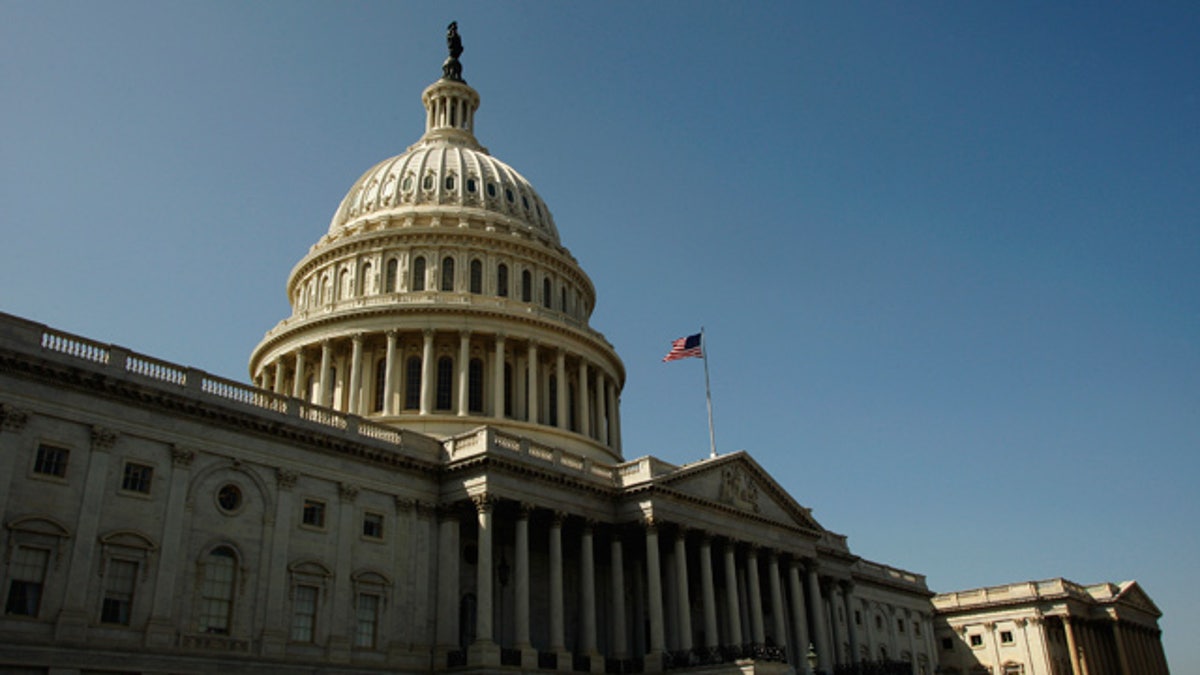
(Reuters)
A burgeoning controversy over the definition of rape in abortion policy has prompted a Republican congressman to assure critics that his bill meant to permanently prevent taxpayer dollars from funding abortions would not exclude any rape victims from federal coverage.
The "No Taxpayer Funding for Abortion Act," introduced late last month by Rep. Chris Smith, R-N.J., has generated heated criticism from advocacy groups who say the legislative language makes it possible to exclude everything from date rape to statutory rape.
Supporters of the measure, which has 173 House co-sponsors, say that was never the intent. But a brief section in the bill outlining "exceptions" would outlaw federal funding for abortion for anyone except those involved in cases of "forcible rape;" incest involving a minor; or where the mother's life is in danger.
Critics who would ordinarily oppose new restrictions on abortion funding are homing in on the exceptions to argue that the proposal goes too far and must be stopped.
"Now is the time for all Americans to tell their representatives that such a callous and heartless bill is unacceptable," NARAL Pro-Choice America President Nancy Keenan said in a statement.
The word "forcible" is what has drawn the ire of women's advocacy groups. Existing restrictions on abortion funding, like the so-called Hyde Amendment, exempt victims of rape without qualifying the term.
Smith told FoxNews.com that the wording in the bill has been "misconstrued."
"The use of the term 'forcible' was not intended to change the meaning of the time-tested protections and exceptions currently contained in the Hyde amendment," he said in a written statement. "To avoid any confusion and to expedite the effort to permanently prevent taxpayers from being complicit in abortion and abortion coverage, we are restoring the text to reflect the exceptions for rape and incest included in the Hyde amendment."
Douglas Johnson, legislative director for the National Right to Life Committee, said the outcry is just a distraction from a proposed policy he claimed would garner broad support.
"They're trying to make a diversionary attack on the bill here," Johnson said.
He said that while earlier anti-abortion policies did not distinguish between different kinds of rape, the reality is that the exemption was for years interpreted to only cover victims of forcible sexual assault. Now that Congress is working on a definitive package to replace the "patchwork" of abortion restrictions, Johnson said, "it is desirable to resolve ambiguities" with regard to the bill's exemptions.
"It is affirming that the federal government is not going to fund routine abortions for pregnant teens," he said.
But some claimed the new language marks a clear shift in the government's view toward rape.
"This mean-spirited bill creates even more obstacles to medical care for rape and incest survivors," Keenan said.
NARAL Pro-Choice America expressed concern that statutory rape involving consensual sex with a minor might not count. Rape involving a woman who is mentally handicapped, has been drugged or is under the influence of alcohol might also fall outside that definition, the group cautioned.
The bill would not prohibit anyone from seeking an abortion using their own money. It would only wall off federal dollars through programs like Medicare and Medicaid.
Attempts to reach other co-sponsors, including Rep. Jeff Flake, R-Ariz., and Rep. Jeb Hensarling, R-Texas, were unsuccessful.
But Rep. Daniel Lipinski, D-Ill., one of the few Democratic members on the list of co-sponsors, this week indicated a willingness to tweak the language pertaining to rape.
"He's open to just removing the word 'forcible' from the bill," spokesman Nathaniel Zimmer told FoxNews.com.
Lipinski said in a written statement that it was never the intent for the bill to change the way rape is defined.
"Rape is an abhorrent crime of violence, and it is essential that our society and government provide support and assistance for victims of rape and that we never diminish the seriousness of this crime. H.R. 3 was not intended to change existing law regarding taxpayer funding for abortion in cases of rape, nor is it expected that it would do so," he said. "Nonetheless, the legislative process will provide an opportunity to clarify this should such a need exist."
Lipinski said the purpose of the bill was to make permanent the existing federal restrictions on abortion funding. This would eliminate loopholes and ensure Congress no longer has to pass multiple prohibitions every year to keep existing restrictions on the books, he said.




